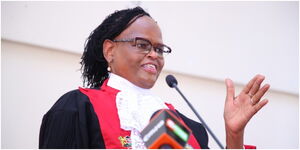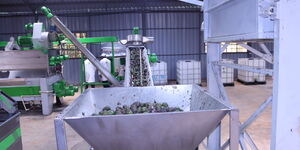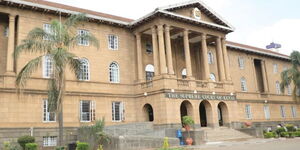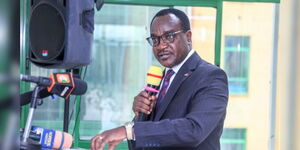In recent days, the political scene has been dominated by debate over the proposed Farm Produce Tax which the government is seeking to introduce as part of its revenue strategy.
As detailed in the Medium-Term Revenue Strategy, the government has proposed to set the tax at a rate of 5 per cent of the total value of farm produce delivered to cooperatives and other organised groups.
In the document that was prepared by the Treasury, under the leadership of Cabinet Secretary Njuguna Ndung'u, it is proposed that the tax be effected between the upcoming Financial Year, 2024/2025 and 2026/2027.
Treasury explained that the tax was aimed at helping raise revenue for government programmes.
Treasury also added that the agricultural sector had been undertaxed over the years.
"The Kenyan economy remains highly dependent on the agriculture sector, contributing an average of 21.2 per cent of the GDP in 2022 and has the highest employment multiplier in the economy. Despite this, the sector's contribution to tax revenue is less than 3 percent indicating that the sector is undertaxed.
"The agriculture sector has unique challenges, including being weather dependent, perishability of the produce, the subsistence nature of the sector and inadequate tax literacy which makes the taxation of this sector difficult. In addition, the sector is highly informal, cash-based and characterized by the notion that the incomes generated from the sector are meagre and should not be taxed," read the strategy report.
Notably, the government anticipated resistance from farmers with the Treasury also outlining a strategy to address the concerns.
"To address these challenges, the government will intensify taxpayer education to ensure that taxpayers understand their role in nation-building and the need to pay taxes," the report added.
The Fallout
The proposed tax has seen a split in the Mt Kenya political leadership. Notably, a section of leaders from the ruling party including Gatanga MP Edward Muriu have stated that they will not support the government proposal.
The leaders explained that the tax would negatively affect a majority of their supporters given that the region's economy is highly dependent on agriculture.
Some of the food items that are produced in the region include; avocado, tea, coffee, and milk among others.
"As an MP, I can tell there is a problem with this proposal. We are the aggregators; the aggregators should be the farmers. These avocado taxes should be imposed on the consumers. The tax should be carried in by the exporter," the MP stated.
Following the unfolding storm, Deputy President Rigathi Gachagua promised that the government would relook the proposal.












